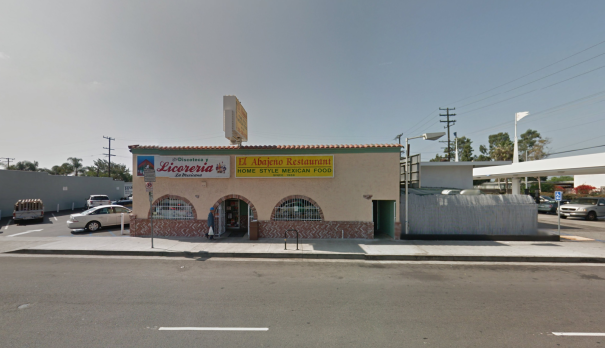
A Last Breakfast in Los Angeles

A Last Breakfast in Los Angeles
Eating with the good drunks of El Abajeño
It’s no secret that El Abajeño in Culver City is a crush, a craving, the reason I jump the taxi line at LAX on arrival.
I cling to places like El Abajeño (and Tito’s, and Azuma, and so on) because each visit to Los Angeles brings so much unwanted mess. This time, in no particular order, I got so high I had to eskimo roll my way out of a hammock in Boyle Heights; I got 86’d from a J-town karaoke bar; I wasted entire days in traffic on the 110, the 91 eastbound, and the 405 in both goddamned directions. Take the food out of LA, and it could be one of the worst cities on earth. Put the food in, and it is suddenly one of the best.
The last day of a weeklong visit, with a midday flight back to New York ahead, it is time for me and my kids to have our third and final visit to Abajeño. The beauty of the breakfast here is that it’s really not much different than the lunch or dinner. The entrees are just as comically oversized as later in the day. They all have lagoons of refried beans, and stewed meat that has been simmering since the last Copa America. Putting an egg on it and calling it Huevos Rancheros doesn’t fool me. It is the same trough of Guadalajaran goodness you’d find any other time of day.
Waiting in line, I call my seven-year-old son by his name, Nico, and bark at him in Spanish to pay attention and order his food. Me and my wife, who is half-Mexican, don’t speak great Spanish around the house. Mostly we only use it when we’re yelling at the kids. That’s a wildly ineffective strategy, unless the goal is to have them forever associate the language of Cervantes with punishment. But it’s our strategy.
From ahead of us in line, someone heard the boy’s name. “Nico!” the man says in Spanish. “That’s my name too.” My son cocks his head and looks at him. He’s mid-50s maybe, a bit sour-smelling with an unmistakable alcohol tan, but happily enough buying himself a full plate of food and a cold beer at 10am. His eyes twinkle. He gives Nico and thumbs up and goes to sit with his food.
We eventually make it to our own table with our own giant plates of food and get to work. Huevos rancheros, enchiladas afloat on a sea of sauce, a burrito the size of a muffler. It all gets eaten. If our plane later that day were to crash-land in the desert, our family would outlive all the other survivors, because we smuggled a week’s worth of food in our stomachs.
I’m thinking about taking my boy and going over to talk to the old, drunken version of Nico. He seems nice enough, and I’m always looking for ways to expose the kid to Spanish that’s not spoken in anger. I stand up from the table, though, only to see that old, drunken Nico has fallen asleep, his fork laid across his chilaquiles, his hand next to his beer.